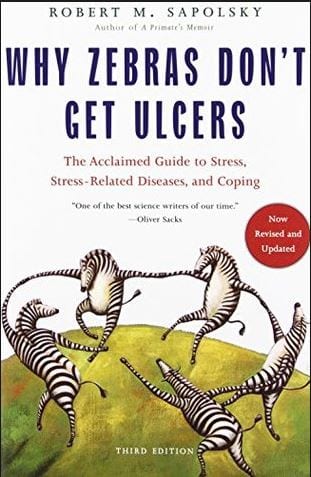By: Bari Sobelson, MS, LMFT
Interesting title, right? It certainly caught my attention, but it also caught my curiosity. While I never really thought about whether or not zebras got ulcers, I certainly knew humans did; and I grew up being told that worry causes ulcers, which meant that I would likely end up with one. So, while the thought of zebras never really crossed my mind, I immediately understood what the title was insinuating.
Think about a zebra or any other animal for that matter. Now think about their primary stressor of being eaten. So, what do they do when they think they are about to get eaten? They run! And, then, the stressor is over; either they got away or they were eaten. After the stressor is gone, they move on. Now think about humans. As Dr. Christian Waugh so eloquently stated in his session from the OneOp 2017 Virtual Conference, we humans seem to find ourselves with a “constant hum” of stress in the background, leading us to trade one stressor in for the next, creating a vicious cycle. When we do not reach the recovery phase, as Dr. Waugh contests, we are setting ourselves up for facing a variety of physical and psychological maladies.
Dr. Robert Sapolsky provides us with an in-depth view of the ways in which constant stress in our lives can contribute to the increased risk for disease. He goes into great detail about stress’s influence on each and every system within the body. While he recognizes that much of this information in the book may seem “grim”, he also offers guidance on stress management and ways that we can play a role in protecting ourselves, and our bodies, from potential disease.
So, if you are interested in learning more about this book, you can find information here: https://www.goodreads.com/book/show/327.Why_Zebras_Don_t_Get_Ulcers.
We welcome you to share your thoughts on this book if you read it in the future or if you have already had the opportunity to read it!
Resources:
Sapolsky, R. (2004). Why Zebras Don’t Get Ulcers. New York: Henry Holt and Company, LLC.













